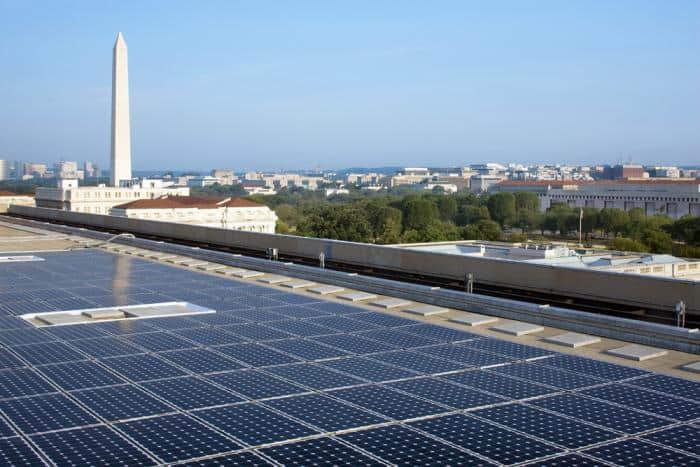Congress recently provided a big ray of sunshine to homeowners who plan to start using solar energy. Lawmakers extended the deadline for the federal solar investment tax credit (ITC), one of the most important policy drivers for solar power in the United States. The ITC has enabled owners of residential, commercial, and utility-scale solar projects to receive a tax credit on a percentage of the total installed cost of their solar system, making this clean energy approach much more economical.
In December 2020, Congress approved an economic stimulus package designed in part to provide COVID-19 relief. That package included a two-year extension of the federal solar investment tax credit. The ITC for solar customers was originally scheduled to drop from 26% in 2020 to 22% in 2021 and then be phased out altogether in 2022.
Thanks to the recent extension, the tax credit will now stay at 26% for two more years. That means in 2021 and 2022, homeowners who purchase a new SunPower® solar systems may be eligible for a 26 percent credit of the cost of their systems that can be applied toward their tax debt.1 In 2023, they can deduct 22 percent1, and – unless it’s renewed again – the credit will end in 2024.
This extension comes as a welcome relief for customers who plan to purchase solar, SunPower, and SunPower’s top-notch network of solar installers. After setbacks to the solar industry in 2020 due to COVID-19, the extension of the tax credit will help ensure the continued resilience of clean, renewable energy throughout the phase of the global pandemic and beyond.
To take full advantage of the ITC, it is good to know the details surrounding how it works, including its benefits to homeowners. Let’s take a closer look at these five questions:
How does a tax credit work?
It’s a dollar-for-dollar tax credit that can be applied to the income taxes you owe. So if you owe $2,000 in federal taxes, and you qualify for $2,000 toward the ITC, you can offset your full tax debt with the credit. Fortunately, if you don’t have a high enough tax bill to claim the entire credit in one year, you may be able to roll over the remaining amount to future years as long as the tax credit is in effect.1
Does this apply to anyone whose house uses solar energy?
It only applies to those who purchase their solar system. Homeowners who lease solar equipment or use a solar power purchase agreement (PPA) usually cannot receive the tax credit. However, some lease and PPA agreements do provide for exceptions. Homeowners who finance their solar through a loan may also be eligible. And those who own a solar installation indirectly may benefit. For instance, condominium owners may be able to receive a tax credit if they contribute to the cost of a solar installation.1
What expenses can be considered when calculating the tax credit?
The following expenses are included in the ITC: Solar panels and equipment used for installation (including inverters, mounting equipment, and wiring). Contractor labor costs associated with installation, including permitting fees, inspection costs, and developer fees. Solar storage units are also eligible, provided that they are charged exclusively by the solar panels associated with the storage system.1
How do I claim the ITC?
You can claim it on your annual federal tax return. Not all customers who purchase solar are eligible for the ITC. We recommend that you consult with your tax advisor to see if you are eligible, and if so, how the tax credit can be applied to your specific circumstances.
Do states provide tax incentives for installing solar?
Yes, many do. Find out more here. Federal tax credits usually have no impact on state tax incentives, and the reverse is true well.
To find out how you can save money on electricity and help the environment with a solar installation, set up an online appointment with one of our SunPower solar experts.
1 Tax credits are subject to change. SunPower does not warrant, guarantee, or otherwise advise its partners or customers about specific tax outcomes. Consult your tax advisor regarding the solar tax credit and how it applies to your specific circumstances. Please visit the dsireusa.org website for detailed solar policy information.
This post originally appeared on the SunPower Resource Blog.











